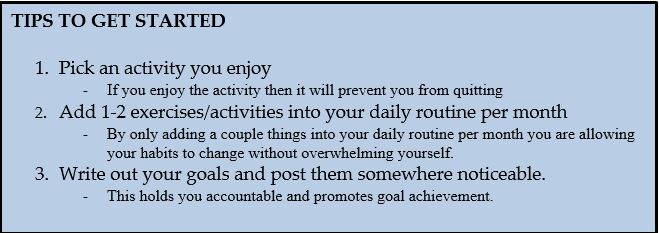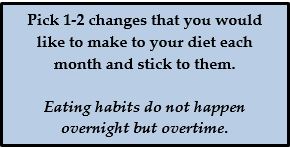June 22, 2015
Ever wonder why you have more good days during the summer rather than the winter?
Today, I will share some of the reasons why people have good days more often in the summer. Before we begin, I just want to expl ain what a “good” day is considered to be. In my opinion, a good day is one where you are happy, have had a good night’s sleep and overall your day goes well. The cause of this may not just be a change in your schedule, but due to Vitamin D.
ain what a “good” day is considered to be. In my opinion, a good day is one where you are happy, have had a good night’s sleep and overall your day goes well. The cause of this may not just be a change in your schedule, but due to Vitamin D.
Fun Facts
- Studies show that Vitamin D deficiency may be linked to autism and schizophrenia. Low vitamin D levels as a child may be a developmental factor for developing these two diagnoses later in life as well as affecting the current state of adults with these diagnoses.1
- There is considerable evidence supporting Vitamin D’s role in depressive disorders.1 Could getting enough sunlight cure depression? – Researchers are currently trying to solve this very question.
- Treatments with skin UV-B exposure, which boost vitamin D, were found to reduce common depression symptoms which are found in people with Seasonal Affective Disorder (SAD).1
|
What are the symptoms of Seasonal Affective Disorder2? |
|
*It is always best to speak with your doctor to prevent false self-diagnosing. |
SAD is more common in northern regions and cities and is prevalent in 2-3% of Canadians, with 15% of Canadians having mild symptoms.3 SAD is also more common in women than men by approximately 4 times.2 |
The benefits of Vitamin D do not stop at helping depression but also assists in vital life functions.
Benefits of Vitamin D
- Regulating absorption of calcium and phosphorus4

- Helping with normal immune functions4
- Assists in growth of healthy bones and teeth4
- Improved resistance against certain diseases4
Without vitamin D you increase your chances of developing osteoporosis (fragile bones) and/or osteomalacia (soft bones.)4
In addition to the above mentioned benefits there are studies showing that vitamin D could decrease the risk of developing multiple sclerosis, heart disease and the flu.
In my personal opinion, vitamin D is quite possibly a miracle vitamin with all of its uses. This summer I’m definitely going to ensure I get enough vitamin D.
STAY SAFE, USE SUNSCREEN PROPERLY5 AND DRINK LOTS OF WATER.
References
- Humble, Mats B. “Vitamin D, Light And Mental Health.” Journal of Photochemistry & Photobiology, B. Biology 101. Special Issue on Solar Radiation and Human Health (2010): 142-149. Web. 8 June 2015.
- American Family Physician. “Seasonal Affective Disorder.” (2000 Mar 1):61(5):1531-1532. 9 June 2015.
- Canadian Mental Health Association. “Seasonal Affective Disorder.” Get Informed. British Columbia Division. (2013). 9 June 2015.
- Healthline Editorial Team. “The Benefits of Vitamin D.” Food & Nutrition; Healthline. (2013 May 20). 9 June 2015.
- Skin Cancer Foundation http://www.skincancer.org/prevention/uva-and-uvb/understanding-uva-and-uvb
May 6, 2015
Exercise not only makes your muscles bigger, but your brain too!
 Can exercise really increase the size of your brain? Today, we will dive into numerous studies to discover the truth about this statement. We all know from experience that someone who works out at the gym frequently usually has lots of big muscles. According to numerous studies, arm, leg and ab muscles aren’t the only thing getting bigger with exercise.
Can exercise really increase the size of your brain? Today, we will dive into numerous studies to discover the truth about this statement. We all know from experience that someone who works out at the gym frequently usually has lots of big muscles. According to numerous studies, arm, leg and ab muscles aren’t the only thing getting bigger with exercise.
The hippocampus is a section of the brain that is highly developed in mammals and is in charge of forming and storing memories.1 Personally, I’d say this is a pretty important part of the brain as we rely on memories not only for sentimental reason but also for academics and our professional careers.
In an American study published in 2013 it was found that aerobic exercise increased hippocampal volume along with an increase in verbal and non-verbal memory whereas non-aerobic exercise had no effect.2
As many of us have learned from watching our grandparents or parents age we know that brain functions such as learning and memory ability decreases. An article written by Korean scientists discovered that short-term memory and spatial awareness can be increased through treadmill exercise.3
From these numerous studies it can be concluded that:
References
- Martin, Elizabeth, and Robert Hine. “hippocampus.”A Dictionary of Biology. : Oxford University Press, 2008. Oxford Reference. 2008. Date Accessed 24 Mar. 2015 http://www.oxfordreference.com.proxy.ufv.ca:2048/view/10.1093/acref/9780199204625.001.0001/acref-9780199204625-e-2083
- Leavitt, V, M., et al. “Aerobic Exercise Increases Hippocampal Volume and Improves Memory In Multiple Sclerosis: Preliminary Findings.” Neurocase 20.6 (2014): 695-697. Web. 24 Mar. 2015
- Kim, Sung-Eun., et al. “Treadmill Exercise Prevents Aging-Induced Failure of Memory Through An Increase In Neurogenesis And Suppression of Apoptosis in Rat Hippocampus.” Experimental Gerontology (2010): 357-365. ScienceDirect. Web. 24 Mar. 2015
March 24, 2015
Are Our Bodies Filled With As Much Water As The Earth’s Surface?
Almost, but not quite; it may not seem like it, but water is just as important to humans as it is to Earth and all of its dependents. The human body is composed of approximately 60-75% of water.1 Wow, right? Now let’s take a look at the earth’s surface; approximately 71% of the Earth is covered by water.2 From these statements we can ascertain that not only is water crucial to the environment and all the living animals that depend upon it but also to the human body.
Staying hydrated is essential to all of the body’s systems and any amount of
dehydration can mess with your body’s normal functions.2
With this information in mind the goal of today’s article is to convince you to switch from your sugary calorie loaded Frappuccino, or pop to simple, and delicious water.
Not only is water super important for most of your body’s functions but even a slight decrease of only 2% can affect your body negatively.1
 You may ask – How do I know if I’m dehydrated? Luckily enough, you do not need to consult a physician to determine whether or not you are dehydrated. Chances are, if your urine is bright yellow then you are dehydrated.1 When your urine is almost clear in colour you can assume that your body is hydrated.1
You may ask – How do I know if I’m dehydrated? Luckily enough, you do not need to consult a physician to determine whether or not you are dehydrated. Chances are, if your urine is bright yellow then you are dehydrated.1 When your urine is almost clear in colour you can assume that your body is hydrated.1
Or How much water should I drink a day? The Dietician of Canada corporation states that women (19yrs +) should drink 2.2L or 9 cups daily while men (19yrs +) should drink 3L or 12 cups daily.
Keep in mind that water has no calories, and fills you up so that you’re not as hungry.1
Check out the following link for more details on dehydration, symptoms, tips, etc – http://www.dietitians.ca/Your-Health/Nutrition-A-Z/Water/Why-is-water-so-important-for-my-body-Know-when.aspx
References:
- Shaw, Brian. “The Importance of Proper Hydration.” Flex 31.4 (2014): 86. SPORTDiscus with Full Text. Web. 12 Mar. 2015.
- S Geological Survey. “How much water is there on, in and above the Earth?” The USGS Water Science School (2014). Web. 12 Mar. 2015
- Dieticians of Canada. “Guidelines for Drinking Fluids to Stay Hydrated” (2014). Web. 12 Mar. 2015
March 17, 2015
Tips To Adding Exercise Into Your Busy Life
Ever find yourself in the middle of the school year complaining to family or friends about how you don’t have the time to exercise anymore? Well you are not alone, I too have found myself complaining about needing more time in the day many times before. With all the things we have going on such as our jobs, and academic responsibilities it’s next to impossible to find time for friends, family, sleep and exercise. As I personally rely on exercise to keep my motivation levels up, my stress levels down and my body fit, it is crucial for me to find time to exercise amidst my hectic life; therefore my goals, over the past 2 years, have been to find ways to incorporate exercise consistently into my life.
The following can be easily added into any busy lifestyle to increase daily activity levels:
1. Leave your lunch in the car
- This gives you an excuse to go for a little walk halfway through your day.
- Also, if it’s sunny out you’ll get a healthy dose of Vitamin D during this walk.
2. Park your car at the back of the parking lot (not at night of course)
- Once again, this gives you a chance to add another little walk to your daily routine.
3. Have a quick workout session during TV Commercials
- Whether it’s an ab workout or lifting weights these short, but frequent breaks during your TV show give you the chance to add more exercise into your daily routine.
4. While studying or doing homework take a fit break
- Every hour or so take a 10 minute break from studying to jump around, do some squats, or stretch. This will not only keep your body fit but it will help keep your mind sharp.
5. Host a short dance party for yourself as often as possible
- Pick your favorite pump-up song and boogie for the duration of the whole song. Shake your bootie, jump up and down, run in spot but mostly just move for 3-5 minutes.
- Not only is this good for the soul but it’s good for the body.
March 9, 2015
A Little Bit About Me
My name is Alysha Harper and I have recently joined the Health and Wellness team at the University of the Fraser Valley. I am currently enrolled in t he Bachelor of Science program but am in the process of transferring into a Bachelor of Kinesiology. This transition is due to the discovery that my true passion lies in health, fitness and overall wellness as opposed to the sciences such as chemistry or biology.
he Bachelor of Science program but am in the process of transferring into a Bachelor of Kinesiology. This transition is due to the discovery that my true passion lies in health, fitness and overall wellness as opposed to the sciences such as chemistry or biology.
Over the next couple of months I will be writing various articles to help all UFV students and staff members achieve their health and wellness goals. These articles will be written not only from personal experience but also from research and what I have learned in my nutrition and fitness classes.
Now, enough about what I plan to do; here’s a little bit about me!
Growing up I was a very active child and throughout my teen years I competed in various competitions around the lower mainland for both swimming and dancing (various mediums). As an adult I have continued to remain active by participating in recreational kickboxing and designing my own workout programs.
FUN FACT: I thoroughly enjoy outdoor activities. Outside of school and work I am often found studying or visiting my friends. If the weather is nice, you can often find me outdoors soaking up as much of the sun’s rays as possible.
Over the past couple of years I have faced huge barriers in finding time for my personal health amidst hectic work and school schedules. With family and friends by my side and my own motivation I have continuously achieved my goals of maintaining a healthy and active lifestyle. This being said I am constantly setting new goals to attain.
My hobbies include: camping, learning, adventuring, painting and much more.
Watch for my next blog on Monday March 16 – Topic: Tips to Adding Exercise Into Your Busy Life
Tips to Eating Healthy
Do you want to start eating healthy and/or lose weight? Are you tired of trying out the latest fad diets that make excessive weight loss claims? Today I will share some tips on how to change your eating habits, become healthier and hopefully lose weight. From my own personal experiences I have learned that changing your eating habits in a healthy way is more effective than short term diets in promoting weight loss.
Your body will thank you for eating healthy.
The most important tips I can give you to change your eating habits are:
Food to Avoid
 Artificial Sugars
Artificial Sugars
- Aspartame, Splenda
- Commonly found in sweetened water, products claiming to have low or no sugar like diet pop
- Low fat foods
- Commonly contain less fat than the original product but may not be a low fat food
- Processed or packaged food
- Usually contains high amounts of sodium, fat, and sugar.
- Restaurant Food
- Most restaurant foods are high in calories, fat and sodium. Be sure to look at online menus and check out the nutritional information before ordering.
- Pop – Diet and Regular
- Pop is the opposite of a nutrient dense food. It is not only incredibly high in calories and sugar but incredibly low in nutritional value.
- Candy and/or Chocolate
- A variety of fruits and vegetables!
- Dark green veggies such as spinach or broccoli
- Antioxidant fruits such as oranges (Also a good source of Vitamin C)
- Veggies rich in calcium such as kale
- Eat fish or the approved alternatives once a week (Canadian Food Guide)
- Whole Grains













